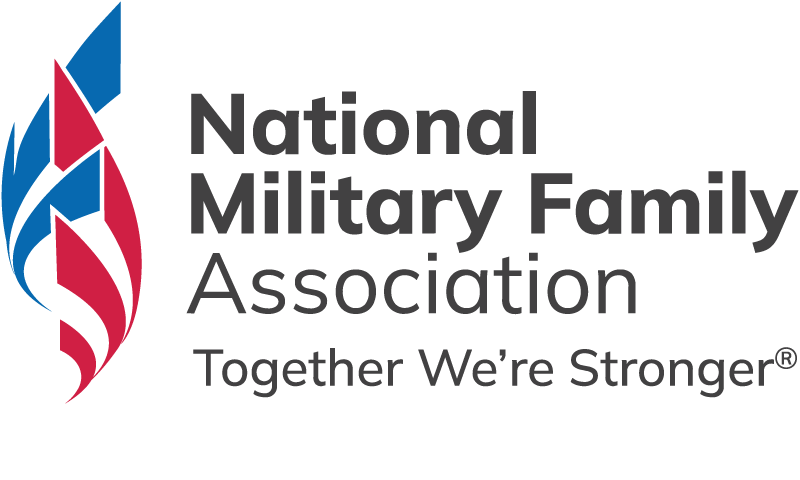Listen Up Congress: Military Families Are Speaking to You

Military families stand as the unwavering support system for nearly half of our Nation’s brave service members. They endure countless sacrifices and face unique challenges that most Americans can scarcely imagine. As Congress deliberates on the National Defense Authorization Act (NDAA) for FY 2025, it is imperative that the House Armed Services Committee (HASC) Quality of Life (QoL) Panel recommendations are included. These recommendations are not mere suggestions—they are lifelines for military families who are struggling to make ends meet.
The Price of Service
The HASC has proposed several key recommendations to improve the quality of life for military families. However, there is pushback due to the cost. The Senate must weigh many competing issues, but it is crucial they understand that supporting military families isn’t optional—it’s essential. These families sacrifice daily for our Nation’s security, and it is our duty to ensure they do not bear undue burdens.
1. Restoring BAH to 100%
One of the most pressing issues is the out-of-pocket costs of housing and utilities. Military families are often left to cover significant expenses themselves. Many families report spending $300 to $700 out-of-pocket monthly in housing costs alone. Inflation and rising costs of living exacerbate this issue, leaving families “living paycheck to paycheck.” On-base housing is not always a viable option due to limited availability and long wait lists. The recommendation to restore the Basic Allowance for Housing (BAH) to 100% of the calculated rate for each respective Military Housing Area (MHA) is critical.
“Even with our BAH, we still needed to pay $300 to $400 in electricity and gas monthly. My husband is considering a second job and even leaving the military.” – Alexandra B., Air Force Spouse
Alexandra wasn’t the only spouse who mentioned that their service member was contemplating leaving military service altogether. One Coast Guard spouse, who chose to remain anonymous, said something similar. “Pay for our service members is so low that they can do the same job for almost double the money in the civilian world. Due to this, many members are opting not to reenlist, leading to a shortage of service members to fill vital roles.” She went on to state that rent where her military family is stationed “starts at $4,000 a month, and most enlisted members receive less than that” when scrambling to cover their housing costs.
2. Increasing Basic Pay for Junior Enlisted Families
The HASC QoL Panel recommended an increase of 15% to basic pay across the board for junior enlisted service members (E-1s to E-4s). According to the Quality of Life recommendations, this increase “will restore real value to basic pay, given the increase in civilian earnings for those with high school diplomas and those with some college.”
Regular Military Compensation benchmarks are currently set at 70% of “comparable civilian compensation”. While we can all agree that every paygrade needs and deserves a pay increase, junior enlisted military families (E1-E4) are particularly vulnerable, facing food insecurity and housing challenges. A 15% increase in basic pay for these families is essential.
“We have 2 kids who are 3 and 1. My husband is an E4 and has served for almost 6 years. I’m so embarrassed to say this, but both my parents AND my husband’s parents have been sending us groceries for the last year. My dad retired from the USMC a couple years ago. My husband’s dad just retired from the Navy last year. They all know, understand and have even EXPERIENCED our struggle and they say that is why they do it for us, but it’s still so embarrassing. I want to work SO BAD, but we can’t afford child care. Even if I did get a job, basically all my money would go to child care so it’s easier if I DON’T work. Which I HATE.
I don’t know if we can keep going on like this. It’s not fair. We don’t spend money on stupid stuff, only our bills. And we have to rely on our parents for groceries and it’s so embarrassing. If we didn’t have our parents, I would have to go to food banks like our friends…who are also E4 families. None of us spend money like crazy or anything. We just go to the park with our kids because it’s free. We all want to work, but it just costs too much to work. How does that even make sense?” – *Joan, Air Force spouse
Junior enlisted families like *Joan’s should not have to struggle to have their basic needs met, yet many are. These families need and deserve immediate financial relief to maintain their well-being and stability.
3. The Impact of PCS Moves on Military Spouse Employment
Permanent Change of Station (PCS) moves severely impact military spouses’ ability to find and keep jobs. Employers often overlook military spouses because of their transient lifestyle, leading to significant employment challenges and financial instability. Over half of the military families who shared their story with us stated they had to give up or indefinitely put on hold their careers due to military life.
“I had to give up my career and take a lower-paying job due to frequent relocations. Spouses cannot gain tenure or increase their salary when switching jobs every few years, putting our families behind.” – Karin P., Navy Spouse
Military spouse employment is a complicated issue lacking a “one size fits all” solution, because there is no “one size fits all” experience for our Nation’s military spouses. The QoL Panel proposed several recommendations meant to enhance existing programs, which at least provides a “one size fits most” starting point that can be fine-tuned in the future. This includes:
- Expanding and permanently authorizing the Military Spouse Career Accelerator Pilot Program (i.e. employment support through paid fellowships).
- Supporting interstate licensure compacts, which has been proven to be the most effective method for military spouse relicensing issues during a PCS. It will give DoD permanent authority to enter into cooperative agreements that will help develop interstate licensure compacts.
- Expanding child care access to military spouses seeking employment by requiring DoD to expand eligibility for DoD Child Development Programs – both on and off installation. This would be specific to unemployed military spouses actively seeking employment from 90-180 days, as it takes military spouses an average of 19 weeks (133 days) to find employment.
4. The Impact of Family Planning on Military Spouse Employment
The cost and availability of child care are critical issues for military families. Many spouses find it difficult to secure adequate and affordable child care when they move, facing long waitlists and shortages of providers. For some, the cost of child care outweighs their income, making it financially unviable to work.
“Moving 8 times in 12 years has made it impossible to maintain a stable career or long-term plans. The financial and emotional strain is immense, and childcare costs often outweigh my earnings.” – Anonymous Army Veteran/Current Military Spouse
We heard from many families who were struggling with the high cost of child care. One of the QoL Panel’s recommendations includes eliminating wait lists for child care fee assistance when a family has identified a qualified provider. Another of the Panel’s recommendations addresses attracting and retaining child care workers. Overall, the Panel’s provisions include:
- Standardizing Benefits for Child Care Staff Across the Services
- Offering competitive Pay for Department of Defense Child Care Personnel
- Assessing the “Come Grow with Us” Child Care Staff Recruitment Effort
- Oversight of Child Development Program Staffing Shortages and Facility Requirements
- An analysis of Transferability of Benefits Between Child Care Centers
- An analysis of Hiring Authorities Available for Department of Defense Child Care Staff
These recommendations really aren’t a whole lot to ask for. If anything, it will help alleviate the other financial burdens that impact military families. How can a military spouse conquer the job market every time they move and help contribute to their family’s economic stability if there are no accessible or affordable child care programs available? It’s an endless cycle, but these recommendations aim to end that cycle.
Voices from the Frontlines
- Nina B., USCG Spouse: “I am a military spouse of 15 years. As a teacher, I need to get certified in every state we move to, which is costly and time-consuming. Quality childcare is often inaccessible, forcing me to stay home despite my career ambitions.”
- Ashley N., USCG Spouse: “In 10 years and 4 PCSs, we’ve always paid out of pocket for utilities. Currently, our utilities in Alaska cost us an additional $300 monthly, despite renting under our BAH.”
- Active-Duty Airman: “I have served for 14.5 years in the USAF. Our base pay and housing allowances have not kept pace with the housing and living costs. A two to four percent annual increase is nice, but when housing and other essentials increase 100% over a few years, it makes it difficult for a young family.”
- Margaret T., Army Spouse: “Our family pays an additional $750 above our housing allowance each month, making us $9,000 short each year.”
- Emily B. Navy Spouse: “There have been times where days after getting paid we only had a few hundred dollars for the rest of the month.”
A Call to Action
These stories are just a few examples of the countless sacrifices made by military families. The stories shared with us show a trend that constant economic instability is not the exception but almost something that is to be expected when living military life. The proposed Quality of Life recommendations are not luxuries; they are necessities. Congress must act with urgency and recognize the critical role these families play in our national defense. It is time to honor their sacrifices by providing the support they need and deserve.
As Congress finalizes the NDAA for FY 2025, they must ensure that the HASC Quality of Life recommendations are included. Our military families stand unwaveringly dedicated beside every service member. NMFA also stands beside them, advocating for their well-being.
Congress: Military Families are speaking to YOU. Will you answer their call?
By: MJ Boice
*some names have been changed by request





